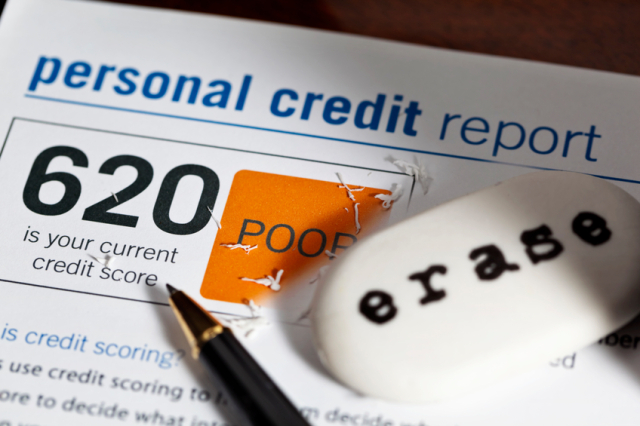Your credit score plays a significant role in your ability to buy a house, a car and other big-ticket items for which you might need to take out a personal loan or line of credit. It also affects your ability to open credit cards and/or receive a decent interest rate. Therefore, it is important to do what you can to keep your credit score as high as possible, including paying your taxes on time.
However, there are times where something unforeseen happens and you find yourself facing significant tax debt without the immediate means to pay it. You might wonder about the effect it may have on your credit score, as well as your financial future. There are several ways that it may impact your score, some of which are minimal and others that might have a more long-lasting effect.
Paying the Debt With a Personal Loan or Credit Card
Paying your debt in full may minimize the direct effect that your taxes have on your credit report, but how you pay it might impact your credit score. If you take out a personal loan or a credit card, then that line of credit is added to your credit report. This can impact your credit score, but the amount it will do so depends on several factors. Credit scores are determined in part by a ratio of income to debt, which is hurt by adding more debt to your report. This is further affected by reaching the limit on one or more of your credit cards. If the new loan or credit card debt is small enough compared to your income and other debt, then you may see a minimal change to your credit score. Even if it is a more significant impact, it typically is not a long-lasting one, since you will see positive changes once you start paying down that balance.
If you take out a new line of credit, whether a personal loan or credit card, to cover the debt, then this also affects your credit report because of a new line of inquiry. Every time there is a new inquiry instigated by you and not a lender sending you credit card application, your credit score is lowered. It should bounce back up as long as you do not open any more lines of credit or make more inquiries within a short time frame. If you miss any of the payments or otherwise renege on the loan or credit card, then that will affect your credit score, and you may also find yourself facing collective action from the lenders.
Not Paying Your Taxes
The worst thing you can do in terms of the effect of a tax bill on your credit history and financial future is to simply do nothing. After a period of time, the IRS will take collective action, especially if you owe more than $10,000. This usually starts with a lien on one or more of your assets and proceeds to a levy, wage garnishment or some other action with continued inaction on your part. A tax lien on your credit history may limit your ability to get a new line of credit, and it might not be removed through bankruptcy.
The tax lien remains on your credit report until you pay your taxes, and then it will remain as part of your credit history for seven years, unless you qualify to have it withdrawn. Having an active lien or a history of one lowers your credit score and hurts your chances of getting new lines of credit in the future.
Setting Up an Installment Agreement or Other Tax Relief Option
You also have the option to set up an Installment Agreement with the IRS to pay your tax debt over time on a monthly payment plan. The IRS does not report to the credit reporting agencies like other creditors do, which means that an Installment Agreement with the IRS does not affect your credit score in any way. There are other programs in place for tax relief, including an Offer in Compromise, Penalty Abatement, and Currently Not Collectible Status, that will likewise not affect your credit–as long as you set it up before the IRS takes collective action. You also have to stay up to date with your payments or else the Installment Agreement is broken and the IRS can take collective action, which in turn will lead to a lien or levy reported on your credit report.
The tax professionals at Fidelity Tax Relief can work with you to find the best way to pay off your federal tax debt in a way that minimizes the impact on your credit history and score as much as possible. We strive to help you so that you can not only get out of debt but also have a positive financial future. Learn more about your options for tax relief settlement by downloading our eBook on the Top 8 Options for Tax Relief.


